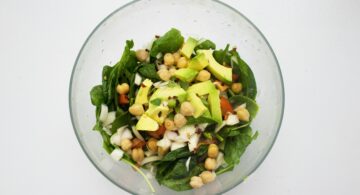Best and Worst Protein Powders
The 6 Healthiest Protein Powders
You can buy protein powders just about everywhere today, from your local supermarket or co-op to the health food store and all over the internet. They come in a myriad of forms, including soy, whey, pea, hemp and casein protein, and with a wide range of price tags. Protein powders are an especially convenient source of high quality, complete protein. They aren’t just for serious athletes and body-builders either!
Using a protein shake as an occasional meal replacement can aid your efforts to lose weight and fat. In fact, they’re often more effective than simply following a lower-calorie diet. Protein is more satiating than fats or carbohydrates and can also help raise the metabolism. One 2008 study, published in the journal Nutrition & Metabolism, demonstrated that obese women and men lost more fat when they drank two protein shake meal replacements per day and followed a low-calorie diet. Subjects who stuck to the diet without the shakes lost less total body fat and more lean muscle mass.
So if you’re trying to lose weight and fat or become more lean and fit, adding protein powder to your diet makes sense. But there are a number of other things to consider before you begin.
Potential Protein Powder Cautions
If you’re already getting enough protein in your diet each day, consuming protein powder, no matter what type, could be dangerous. Excess protein, whether it’s from food or protein powder, can raise your risk of developing kidney stones or kidney disease. This is because eating too much protein boosts the level of uric acid that leads to kidney stones. A high-protein diet also reduces levels of citrate, the chemical in urine that helps prevent stones from forming.
High amounts of protein can also lead to osteoporosis. Taking in more animal protein than you need causes your body to convert extra protein building blocks called amino acids into organic acids that acidify the bloodstream. The kidneys neutralize the acidity by pushing large amounts of calcium into the urine, taking it from the bones. Particularly in women, if this occurs over a long period of time, it increases the risk of osteoporosis.
Dehydration is another concern when taking in large amounts of protein. If you aren’t getting enough carbs, then the body goes into ketosis. Ketosis is a state in which there is a buildup of toxic ketones in the body. To dispose of excess ketone bodies, the body uses the kidneys to excrete them in urine. This increases dehydration risk, even more so if you’re working out intensely and losing a lot of fluid through sweat. Dehydration has a number of side effects, including everything from lethargy, dizziness and bad breath to serious issues like stress on the kidneys and even a dysfunction in the heart.
Some people experience bloating and/or gas when consuming protein powders. Thankfully, this is something that’s easily corrected. Skipping any protein powders that contain sugar alcohols may eliminate the problem. This includes:
- Sorbitol
- Xylitol
- Lactitol
- Erythritol
- Mannitol
- Isomalt
- Hydrogenated starch
If you’re blending your protein powder into a shake, keep in mind the longer you blend, the more air is whipped into it. A whipped shake means you’ll swallow more air. Be careful not to slurp it down – sip slowly or it could leave you feeling uncomfortably bloated and gassy.
4 Reasons to Use Protein Powder
But if you use common sense and caution, there are a number of reasons to consider supplementing with protein powder:
- You’re starting a new workout program. If you’re new to exercise, or starting again after a long period of inactivity and are trying to build muscle, you’ll need more protein than usual.
- You’re working out more intensely. If you’re going to be amping up those workouts, your body needs more protein. For example, if you begin to train for a half-marathon, you will need extra protein.
- You’re recovering from an injury. If you’ve suffered from a sports injury, you probably need more protein to help that injury heal.
- You’re going vegetarian or vegan. Certain protein powders can be a vegan or vegetarian protein source. If you are eliminating chicken, fish, meat and possibly dairy, then you will need alternative protein options.
3 Benefits of Protein Powder
As mentioned previously, protein powder can help you lose weight and fat, but what else can consuming protein powder do?
- Improve blood sugar levels. Blood sugar metabolism requires the proper release of insulin after a meal. A higher intake of protein at one time can significantly improve insulin production and glucose metabolism. One study on overweight adults who consumed 54 grams of whey protein per day proves my point. Participants managed to lower fasting insulin by 11 percent while improving markers of insulin sensitivity by 10 percent.
- Build muscles. One of the primary ways protein helps improve weight and fat loss is by aiding in muscle building. That’s because protein is used in the production of muscles. Without enough protein your body is unable to put the structures together that make up every cell, tissue, and organ. Nor can the body produce the biochemical compounds necessary for cardiovascular functioning. In addition, protein is necessary for muscle growth and contraction.
- Prevent injury. A lack of protein in the diet means the muscles won’t heal as quickly. This only leads to overtraining and ultimately, injury.
The Best Types of Protein Powders
Now that you know more about protein powder and the pros and cons of taking it, your next decision is which type to take.
Whey
Whey is one of the most popular protein powder forms. It’s made from milk, which is easily digestible, although if you have an allergy to dairy or lactose, avoid it. Whey is also a complete protein, containing all the essential and nonessential amino acids. It even boasts the highest branched-chain amino acid content found in nature. Be sure to look for whey protein isolate rather than concentrate. Whey protein isolate contains the highest protein concentration, 90-95%, with very little fat.
Hemp
Hemp is ideal for vegans and vegetarian because it is a near-complete plant-based protein. It also offers the ability to lower inflammation with its omega-6 essential fatty acids. Some research has suggested hemp protein may be more helpful with weight loss than other protein powders due to its high fiber content.
Casein
Casein is another milk protein. But it differs from whey because the body absorbs it at a slower pace. That makes it a good choice for meal replacements to help you stay fuller longer. If you take it right before bedtime, then it will supply the body with protein through the night to avoid muscle loss. The downside with casein is that it’s less water-soluble than whey and doesn’t mix as well with liquids. If you purchase casein, then be sure to look for “calcium caseinate” on the label so you’re getting the purest form.
Soy
Soy is also a complete plant-based protein that makes another option for vegans, vegetarians and those who are lactose intolerant. However, soy protein is highly processed, so it’s really not the best choice for your health. Some studies have also linked consumption of soy in general to higher risk of breast cancer. Not only does soy fall short on protein “quality,” but soy is also a known inhibitor of thyroid function. When your thyroid is suppressed, weight loss is severely compromised.
We don’t recommend soy products, so if you choose to use soy it should be consumed only in moderation. Also, choose soy protein isolate. It is higher in protein and isoflavones, and lower in cholesterol and fat compared to soy protein concentrate.
Brown rice
Brown rice protein powders are generally considered inferior to whey protein when it comes to building muscle. While brown rice protein contains all the essential amino acids, it’s too low in lysine to be considered a complete protein.
Pea
Pea protein is plant-based and highly digestible. It is also high in glutamic acid, which helps to convert carbs into energy so that they won’t be stored as fat. The downside is that pea protein is not a complete protein. Therefore, it’s important to pair it with other vegan sources of protein like hemp.
Protein powders can provide extra protein for a variety of health applications. In addition to drinking your protein powder, try this tasty dish below.
Coffee and Cream Protein Pancakes
If you’re looking for a fun Saturday morning breakfast or Sunday brunch recipe with extra protein, consider throwing your protein powder into this recipe.
Pancake ingredients:
- 1/3 cup rolled oats
- 1 scoop (30g) vanilla protein powder
- 2 tbsp ground flax seed
- 1/2 tsp baking powder
- 1 egg white
- 1/4 cup strong-brewed cold coffee
- 1/2 tsp pure vanilla extract
- 1/4 tsp coffee extract (the McCormick brand offers this along with their spices and other extracts)
Cream filling ingredients:
- 1/3 cup organic cottage cheese (like Nancy’s)
- 1/2 large banana
- 1/8 tsp coffee extract
Directions:
- Heat a nonstick skillet or pancake griddle over medium heat.
- In a food processor or blender, grind oats into flour.
- Combine oat flour, protein powder, ground flax, and baking powder in a bowl.
- In a separate bowl, whisk egg white until frothy.
- Add coffee and extracts to egg whites, stir and add to dry ingredients.
- Stir until flour is incorporated.
- Allow the batter to sit at least 5 minutes before continuing.
- Spoon the batter onto skillet surface, forming 3 medium-sized pancakes.
- Cook for 5 to 6 minutes on each side, or until golden brown with crisp edges.
- Make the filling by combining the cottage cheese, banana and extract in a food processor or blender; blend until smooth.
As you can see, a protein is just not a protein. And it’s more than just “how much protein” you need—it’s the specific type of protein that’s even more important. You need a true, honest and delicious protein blend that WORKS.
If you’re going to be drinking protein “milkshakes” daily, then you want to make sure you’re using a brand that you truly enjoy and look forward to. As you’ve probably surmised by now, the best option for greater weight loss, convenience, ease, and overall health, is to select a high-quality protein shake in the form of an easy-to-mix powder. Fortunately for you, I was determined to find a solution. One with second-to-none quality, taste, digestibility and absorption, and totally free from any of these toxins or inferior proteins. The end result? BioTrust® Low Carb™ protein powder.
BioTrust® Low Carb™ is gluten-free, soy-free, and made with natural ingredients. That means it contains no artificial additives, colors, flavors, preservatives, or sweeteners… at all. Instead, it’s naturally sweetened with all-natural stevia extract and a naturally sweet form of fiber called inulin that adds a sizable 4 grams of fiber per 24 grams of protein.
You will be thrilled to discover that fat-burning BioTrust Low Carbis very affordable. Beyond that, you can claim a FREE container of BioTrust® Low Carb™ Premium Protein right here…
And as if that weren’t enough, BioTrust has agreed to give Home Cures That Work members a TON of free bonus gifts to make your experience even easier and more enjoyable. Choose your flavor now to get started with your FREE container of protein powder and bonus gifts.


























